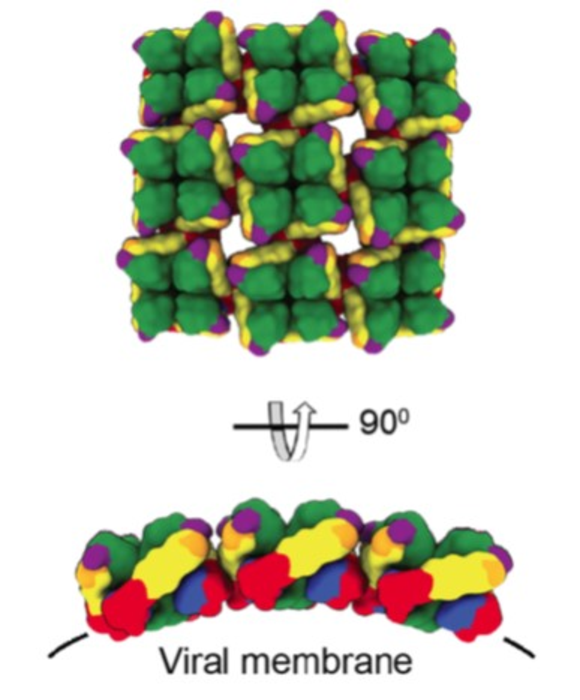An international research team discovered the first human antibody to effectively neutralize two types of hantaviruses in animal models, according to a study published online Mar. 16 in Science Translational Medicine. Based on their initial results, the antibody appears to be a promising candidate for developing a “pan-hantavirus” therapy to protect against outbreaks caused by multiple types of known or emerging hantaviruses.

Credit: USAMRIID courtesy photo
An international research team discovered the first human antibody to effectively neutralize two types of hantaviruses in animal models, according to a study published online Mar. 16 in Science Translational Medicine. Based on their initial results, the antibody appears to be a promising candidate for developing a “pan-hantavirus” therapy to protect against outbreaks caused by multiple types of known or emerging hantaviruses.
Collectively, hantaviruses cause about 50,000 severe and often fatal infections worldwide in people each year. While humans are typically infected by contact with rodents, the viruses also can be transmitted by direct person-to-person contact. No approved therapies are currently available for treating hantavirus infection.
Rodent-borne hantaviruses are grouped into two distinct viral families, commonly called “Old World” and “New World” hantaviruses, and cause two types of disease. Hemorrhagic fever with renal syndrome (HFRS) is caused by Old World viruses found mostly in Europe and Asia, while New World viruses cause hantavirus cardiopulmonary syndrome (HCPS) and are typically found in North and South America.
In this paper, scientists describe isolating several human monoclonal antibodies, or mAbs, from a patient in Sweden who survived infection with Puumala virus, which causes HFRS in humans. Through initial screening in cell culture, the team identified several mAbs that effectively neutralized both Old World and New World hantaviruses.
Next, the researchers tested a mAb that looked especially promising in two different animal models. They challenged hamsters and voles with Puumala (Old World) virus and Andes (New World) virus, and found that this single antibody afforded broad protection to both groups.
“This is the first monoclonal antibody to demonstrate cross-protective efficacy against divergent Old and New World hantaviruses,” said Andrew S. Herbert, Ph.D., branch chief for viral immunology at the U.S. Army Medical Research Institute of Infectious Diseases (USAMRIID). Herbert served as co-senior author of the paper and directed the Andes virus challenge studies at the Institute.
According to the authors, hantavirus outbreaks in Sweden, Argentina, and the United States over the past two decades highlight the public health risks posted by these viruses. The frequency of these and other emerging disease outbreaks is expected to grow in concert with animal habitat loss and climate change.
“The lack of FDA-approved or emergency use-authorized vaccines and therapeutics represents a critical gap in our preparedness for a public health emergency caused by a large hantavirus outbreak,” they conclude.
About the U.S. Army Medical Research Institute of Infectious Diseases:
For over 53 years, USAMRIID has provided leading edge medical capabilities to deter and defend against current and emerging biological threat agents. The Institute is the only laboratory in the Department of Defense equipped to safely study highly hazardous viruses requiring maximum containment at Biosafety Level 4. Research conducted at USAMRIID leads to vaccines, drugs, diagnostics, and training programs that protect both Warfighters and civilians. The Institute’s unique science and technology base serves not only to address current threats to our Armed Forces, but is an essential element in the medical response to any future biological threats that may confront our nation. USAMRIID is a subordinate laboratory of the U.S. Army Medical Research and Development Command. For more information, visit www.usamriid.army.mil.
Reference:
Human antibody recognizing a quaternary epitope in the Puumala virus glycoprotein provides broad protection against orthohantaviruses. Mittler et al., Sci. Transl. Med.14, eabl5399 (2022) 16 March 2022.
Authors:
Eva Mittler, Anna Z. Wec, Janne Tynell, Pablo Guardado-Calvo, Julia Wigren-Byström, Laura C. Polanco, Cecilia M. O’Brien, Megan M. Slough, Dafna M. Abelson, Alexandra Serris, Mrunal Sakharkar, Gerard Pehau-Arnaudet, Russell R. Bakken, James C. Geoghegan, Rohit K. Jangra, Markus Keller, Larry Zeitlin, Olli Vapalahti, Rainer G. Ulrich, Zachary A. Bornholdt, Clas Ahlm, Felix A. Rey, John M. Dye, Steven B. Bradfute, Tomas Strandin, Andrew S. Herbert, Mattias N.E. Forsell, Laura M. Walker, and Kartik Chandran
Funding:
This research was supported by the National Institute of Allergy and Infectious Diseases, National Institutes of Health, under a grant to the Prometheus consortium. Led by Albert Einstein College of Medicine, New York, the consortium includes USAMRIID and institutions from seven countries in the Americas, Europe, and Africa, as well as from academia, government, and industry. The group’s aim is to develop antibody-based therapies against lethal viruses that commonly spread from animals to people.
Journal
Science Translational Medicine
DOI
10.1126/scitranslmed.abl5399
Method of Research
Experimental study
Subject of Research
Animals
Article Title
Human antibody recognizing a quaternary epitope in the Puumala virus glycoprotein provides broad protection against orthohantaviruses
Article Publication Date
16-Mar-2022




